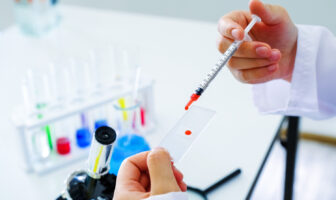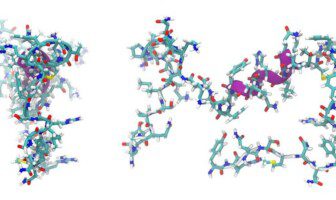
Not sure if your child has ADHD? Are you looking for more information and are you seeking aid?
The way people estimate the number of children with ADHD can vary over time. According to the CDC, around 5% of the children in the United States have this condition. While that might be a small percentage, that still means about 6.1 million children.
A common notion is that your children may have ADHD if they get headaches or can’t sit still but is this true? To further understand, here are some things that you need to consider:
What is ADHD?
Attention Deficit Hyperactivity Disorder is a condition where people have difficulty focusing on something without feeling distracted. They experience more difficulties in terms of controlling their words and actions compared to people without the disorder. Simply put, people suffering from it become more restless and impulsive.
North Americans use ADD as an alternative acronym for the disorder. ADD in children is an entirely different situation compared to the boisterous behavior common to children. After all, very young children can become restless and have short attention spans without having ADD.
What Causes ADHD?
The medical community is still not sure about the exact reason behind the causes of the disorder. What’s sure is that ADD isn’t caused by excessive video games, sugar, and bad parenting. Always remember that it’s a biological disorder based on the brain.
A lot of brain imaging studies show that people suffering from ADD have physiological differences compared to the standard brain structure.
Other studies show that the likelihood of children getting ADD increases by a factor of four if they have a relative diagnosed with the disorder before. This means that the condition has a genetic factor as well.
With this, more research delves into the possibility of isolating specific genes that increase ADD susceptibility. While the scientists have a broad range of genes to investigate, they take an interest in those linked to the neurotransmitter dopamine.
However, with ADD being a complex disorder, experts think that it involves at least two genes.
Also, there are a lot of studies that show that dangerous chemicals can contribute to ADD as well as autism and other learning disabilities. Some of these harmful toxins include:
- Food Chemicals
- Carpeting and Flooring Chemicals
- Cleaning and Lawn Care Products
- Personal Care Products
The reason behind this is that the toxin present in these chemicals can hinder the development of the brain. These will more or less likely to result in ADD on children.
What are the ADHD Symptoms in Adults?
A lot of adults aren’t aware they have ADD. Most feel that they can’t accomplish their everyday tasks without it being a challenge. These people can’t focus and prioritize things, making them miss their deadlines and forget meeting and social plans. Their impulsiveness can often lead to impatience or rage outbursts, depending on severity.
Here are other ADD symptoms:
- Poor time management skills
- Multitasking troubles
- Frequent mood swings
- Poor planning and prioritizing
If you’re an adult that has a lot of disruptions because of these symptoms, you need to see a doctor. A lot of the symptoms can manifest even if you don’t have ADD. But it’s important that you get yourself checked to ensure that you get the right treatment if you’re suffering from it or some other mental condition.
ADHD Medication :
When it comes to this disorder, one key neurotransmitter involved is the norepinephrine. Its building blocks dopa and dopamine can also contribute to this. As such, medications to treat ADD involve stimulating brain cells to produce the neurotransmitter.
You can also discover more medications here.
Stimulants :
This is the most common type of medicine prescribed by most physicians to treat ADD. They’re often the first medicine people take to curb their condition. It accomplishes the job by increasing norepinephrine and dopamine levels in the brain, improving concentration and lessens tiredness.
However, their main problem is that they can become addicting. That’s why a lot of doctors take great care when prescribing it to both children and adults. Like other medicines, it has side effects like headaches and higher blood pressure, which disappear after a few weeks of use.
Mild Stimulants :
Some of the drugs that treat ADD are milder, using methylphenidate. This blocks the two neurotransmitters’ reuptake into the brain’s neurons. Some of the most famous brands include Focalin and Concerta.
As with stimulants, these medicines can produce similar side effects. You also need to be careful since these can also become addicting when used on a regular basis. Some of the mild stimulants can have an extended release liquid while others can have a chewable tablet form.
Non-Stimulants :
These medicines, unlike the first two types, don’t increase your dopamine levels. While it takes a while for the results to kick in, it’s often prescribed when stimulants fail to take effect. Also, it’s a great treatment option to avoid the side effects present on most stimulants.
Non-stimulant medications won’t cause sleeplessness like stimulants. It doesn’t even have the possible risk of addiction. It’s overall better than stimulants because the effects have a tendency to last longer.
Antidepressants :
There are some physicians that prescribe this type of medicine. The reason is that the patient might have a more complex diagnosis of ADD. The FDA doesn’t approve of this unless prescribed as an addition to the patient’s existing medications.
Psychological Therapy :
For children, behavior modification is a great option when it comes to psychotherapies. It’s effective especially when a mental health therapist educates the child’s parents about the techniques needed to help their children’s behavior.
Often, psychotherapies use educational interventions as a complement to help boost learning skills.
Learn More About ADHD Today!
There are a lot of ADHD causes and treatments out there. If you or your children have a difficult time focusing on the point that it disrupts your life, you need to get to a doctor and receive a diagnosis. By then, you can get the proper treatment to improve your life condition, regardless of whether it’s ADD or some other mental condition.
Do you need more health and fitness tips? Read more of our posts and get more information today, like this one discussing headaches in children.
Also Read :




























